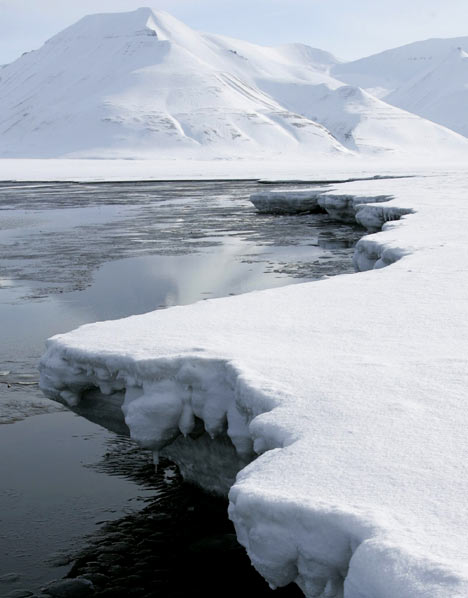Arctic ice cap to disappear
The Arctic ice cap will disappear during the summer within a decade, according to findings released Wednesday by a polar research team.
|
|
|
Melting: Scientists say ice caps are melting faster than had been previously thought. [File photo] |
The Catlin Arctic Survey team, led by explorer Pen Hadow, trekked through the northern part of the Beaufort Sea in the North Pole for 73 days earlier this year.
Across their 450-km route, the team found that most of the ice in the region is first-year ice that is only around 1.8 meters deep and will melt next summer. The region usually has contained thicker multiyear ice that does not melt so quickly.
"The Catlin Arctic Survey data supports the new consensus view... that the Arctic will be ice-free in summer within about 20 years, and that much of the decrease will be happening within 10 years." said Professor Peter Wadhams, head of the polar ocean physics group at Cambridge University in Britain.
Martin Sommerkorn, senior climate change adviser for the World Wide Fund for Nature's international Arctic programme, said the ice meltdown was happening "faster than we thought."
"Such a loss of Arctic sea ice cover has recently been assessed to set in motion powerful climate feedbacks which will have an impact far beyond the Arctic itself," he said.
But the short-term benefits of the melting could mean resource development and faster shipping. The Northwest Passage linking the Atlantic and Pacific oceans could one day become a regular shipping lane.
 0
0 







